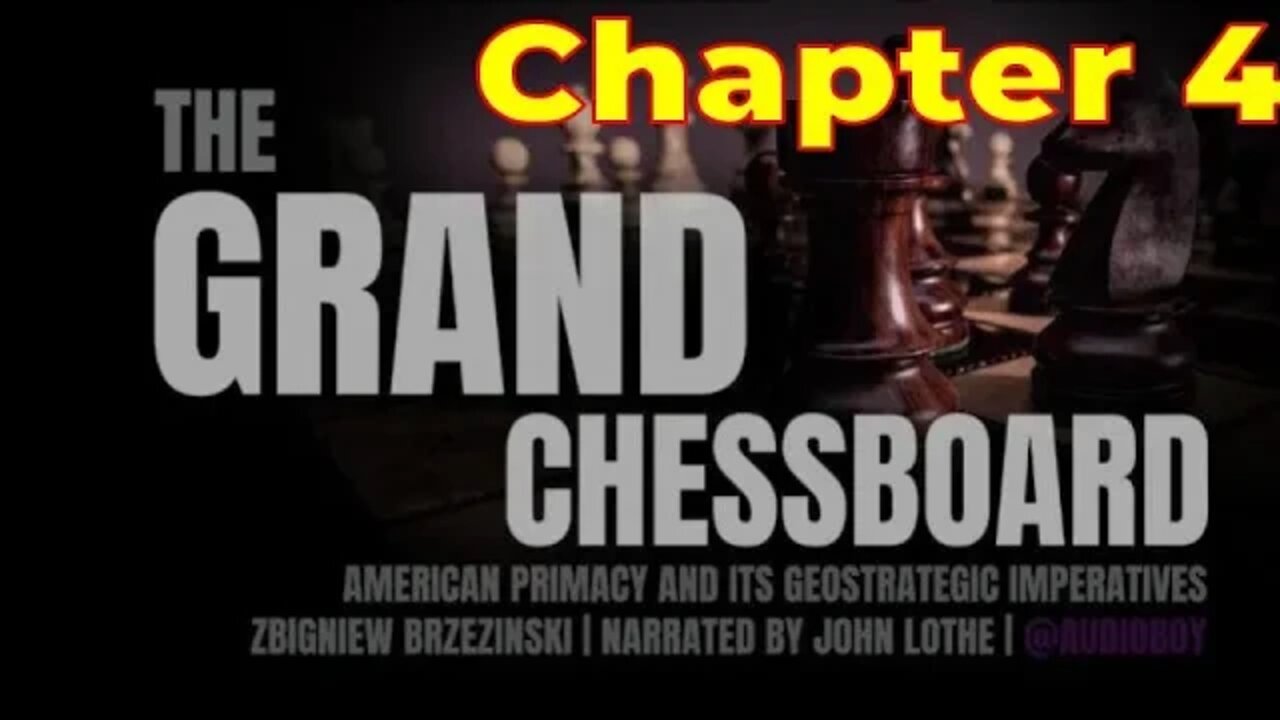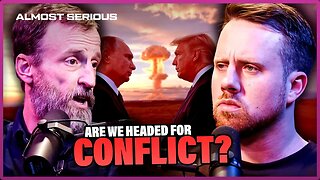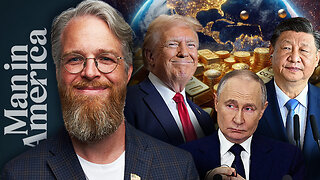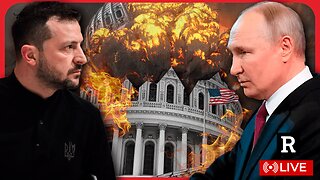Premium Only Content

The Grand Chessboard – Zbigniew Brzezinski – Chapter 4 – Audiobook
Here is the second edition of a well-known text on how the United States should interact in diplomacy with the nations of the Eurasian continent.
Link: https://www.amazon.com/-/de/dp/046509435X
Support the channel:
👉 Paypal: https://paypal.me/mario1337
👉 BTC: 35iDtUzZq33CoJhmK38TdV9Xunvs7TKmzX
👉 ETH: 0xf396A0e10911b4BC975CfE80117412D484B24d1e
▶️Contact: gummipuppe78@gmail.com
▶️Twitter: https://twitter.com/Freiheitsloewe
▶️Odysee: https://odysee.com/@EugenRichterAudiobooks:2
▶️Rumble: https://rumble.com/c/c-1940805
As the twentieth century draws to a close, the United States has emerged as the world's only superpower: no other nation possesses comparable military and economic power or has interests that bestride the globe. Yet the critical question facing America remains unanswered: What should be the nation's global strategy for maintaining its exceptional position in the world? Zbigniew Brzezinski tackles this question head-on in this incisive and pathbreaking book.The Grand Chessboard presents Brzezinski's bold and provocative geostrategic vision for American preeminence in the twenty-first century. Central to his analysis is the exercise of power on the Eurasian landmass, which is home to the greatest part of the globe's population, natural resources, and economic activity.
Stretching from Portugal to the Bering Strait, from Lapland to Malaysia, Eurasia is the "grand chessboard" on which America's supremacy will be ratified and challenged in the years to come. The task facing the United States, he argues, is to manage the conflicts and relationships in Europe, Asia, and the Middle East so that no rival superpower arises to threaten our interests or our well-being.The heart of The Grand Chessboard is Brzezinski's analysis of the four critical regions of Eurasia and of the stakes for America in each arena--Europe, Russia, Central Asia, and East Asia.
The crucial fault lines may seem familiar, but the implosion of the Soviet Union has created new rivalries and new relationships, and Brzezinski maps out the strategic ramifications of the new geopolitical realities. He explains, for example: Why France and Germany will play pivotal geostrategic roles, whereas Britain and Japan will not. Why NATO expansion offers Russia the chance to undo the mistakes of the past, and why Russia cannot afford to toss this opportunity aside. Why the fate of Ukraine and Azerbaijan are so important to America.
Why viewing China as a menace is likely to become a self-fulfilling prophecy. Why America is not only the first truly global superpower but also the last--and what the implications are for America's legacy. Brzezinski's surprising and original conclusions often turn conventional wisdom on its head as he lays the groundwork for a new and compelling vision of America's vital interests. Once, again, Zbigniew Brzezinski provides our nation with a philosophical and practical guide for maintaining and managing our hard-won global power.
Sources
11 In “Our Security Predicament,” Foreign Policy 88 (Fall 1992):60.
12 Aleksandr Prokhanov. “Tragedy of Centralism,” Literaturnaya Rossiya, January 1990, pp. 4–5.
13 Interview in Rossiyskaya Gazeta, January 12, 1992.
14 A. Bogaturov and V. Kremenyuk (both senior scholars in the Institute of the United States and Canada), in “The Americans Themselves Will Never Stop,” Nezavisimaya Gazeta, June 28, 1996.
15 For example, even Yeltsin’s top adviser, Dmitryi Ryurikov, was quoted by Interfax (November 20, 1996) as considering Ukraine to be “a temporary phenomenon,” while Moscow’s Obshchaya Gazeta (December 10, 1996) reported that “in the foreseeable future events in eastern Ukraine may confront Russia with a very difficult problem. Mass manifestations of discontent . . . will be accompanied by appeals to Russia, or even demands, to take over the region. Quite a few people in Moscow would be ready to support such plans.” Western concerns regarding Russian intentions were certainly not eased by Russian demands for Crimea and Sevastopol, nor by such provocative acts as the deliberate inclusion in late 1996 of Sevastopol in Russian public television’s nightly weather forecasts for Russian cities.
16 N. S. Trubetzkoy. “The Legacy of Genghis Khan,” Cross Currents 9 (1990):68.
17 Interview with L’Espresso (Rome), July 15, 1994.
18 Aleksei Bogaturov. “Current Relations and Prospects for Interaction Between Russia and the United States,” Nezavisimaya Gazeta, June 28, 1996.
#geopolitics #history
-
 25:17
25:17
Eugen Richter Audiobooks
1 year agoStalins Secret Agents – Evans & Romerstein – Chapter 10: The War Within the War
1.47K2 -
 1:09:53
1:09:53
Slightly Offensive
6 hours ago $5.29 earnedIs the US Headed for MORE WAR Under TRUMP? | Guest: Scott Horton
36.8K9 -
 58:29
58:29
The StoneZONE with Roger Stone
5 hours agoRoger Stone Hails Confirmation of Kash Patel, Trashes Schiff for Attacks On Patel | The StoneZONE
43.8K13 -
 48:44
48:44
Man in America
10 hours agoA MASSIVE Global Financial Reset Is Coming—Are You Ready?
32.9K6 -
 1:15:42
1:15:42
Precision Rifle Network
1 day agoS4E5 Guns & Grub - The Best Rifle Under $2000
48.6K6 -
 1:02:54
1:02:54
Glenn Greenwald
1 day agoSouth Korean Economist Ha-Joon Chang on the Economic World Order, Trump's Tariffs, China & More | SYSTEM UPDATE #410
77.4K45 -
 1:02:27
1:02:27
Donald Trump Jr.
11 hours agoBye Mitch, plus Kash confirmed, Interview with AJ Rice | Triggered Ep.218
126K70 -
 1:12:27
1:12:27
The Amber May Show
12 hours ago $2.90 earnedWomen Of Rumble 02-20-25
33.2K7 -
 41:18
41:18
Kimberly Guilfoyle
11 hours agoToday, We Kash in on Equal Justice, Live with Ryan Walters & Daniel Turner | Ep.198
96.9K22 -
 1:36:50
1:36:50
Redacted News
10 hours agoThe TRUTH in Ukraine has been EXPOSED by Trump and they are melting down | Redacted w Clayton Morris
136K225